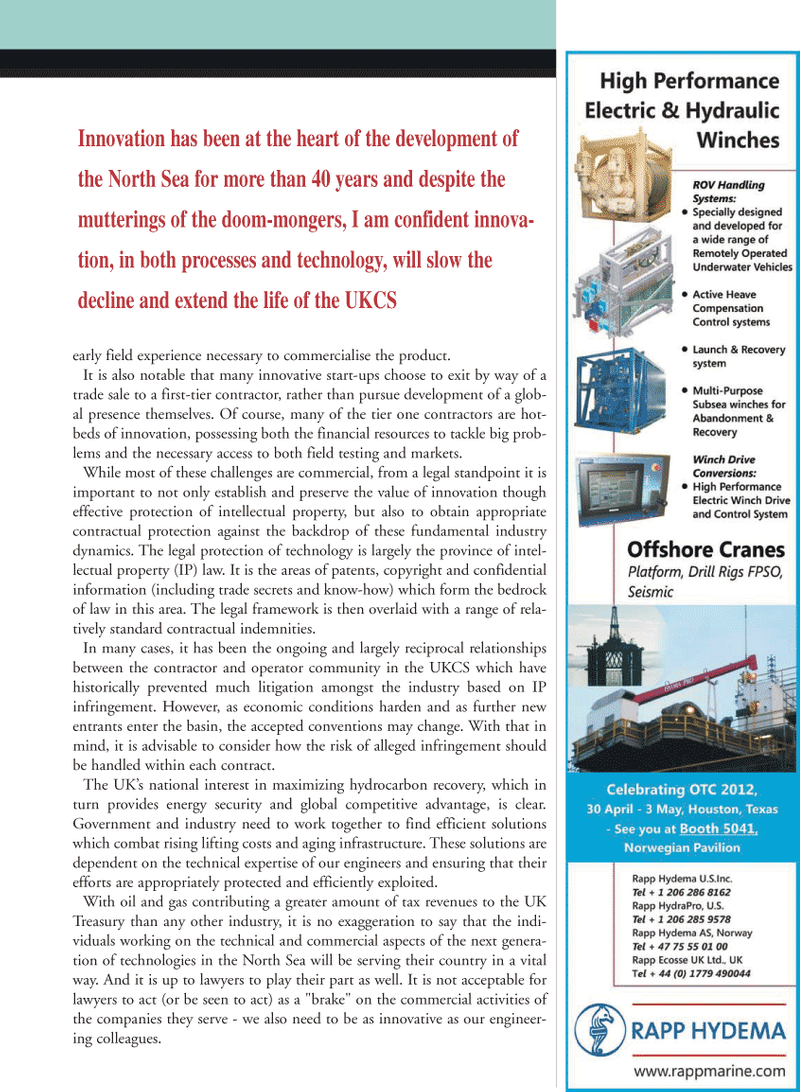
Page 25: of Marine Technology Magazine (April 2012)
Global Offshore Deepwater Report
Read this page in Pdf, Flash or Html5 edition of April 2012 Marine Technology Magazine
early field experience necessary to commercialise the product. It is also notable that many innovative start-ups choose to exit by way of a trade sale to a first-tier contractor, rather than pursue development of a glob- al presence themselves. Of course, many of the tier one contractors are hot- beds of innovation, possessing both the financial resources to tackle big prob- lems and the necessary access to both field testing and markets. While most of these challenges are commercial, from a legal standpoint it is important to not only establish and preserve the value of innovation though effective protection of intellectual property, but also to obtain appropriate contractual protection against the backdrop of these fundamental industry dynamics. The legal protection of technology is largely the province of intel- lectual property (IP) law. It is the areas of patents, copyright and confidential information (including trade secrets and know-how) which form the bedrock of law in this area. The legal framework is then overlaid with a range of rela- tively standard contractual indemnities. In many cases, it has been the ongoing and largely reciprocal relationships between the contractor and operator community in the UKCS which have historically prevented much litigation amongst the industry based on IP infringement. However, as economic conditions harden and as further new entrants enter the basin, the accepted conventions may change. With that in mind, it is advisable to consider how the risk of alleged infringement should be handled within each contract.The UKs national interest in maximizing hydrocarbon recovery, which in turn provides energy security and global competitive advantage, is clear. Government and industry need to work together to find efficient solutions which combat rising lifting costs and aging infrastructure. These solutions are dependent on the technical expertise of our engineers and ensuring that their efforts are appropriately protected and efficiently exploited. With oil and gas contributing a greater amount of tax revenues to the UK Treasury than any other industry, it is no exaggeration to say that the indi- viduals working on the technical and commercial aspects of the next genera- tion of technologies in the North Sea will be serving their country in a vital way. And it is up to lawyers to play their part as well. It is not acceptable for lawyers to act (or be seen to act) as a "brake" on the commercial activities of the companies they serve - we also need to be as innovative as our engineer- ing colleagues. Innovation has been at the heart of the development of the North Sea for more than 40 years and despite the mutterings of the doom-mongers, I am confident innova- tion, in both processes and technology, will slow the decline and extend the life of the UKCS

 24
24

 26
26
